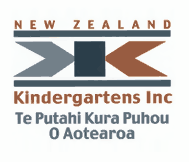So you are about to launch into the Kindergarten phase of your life. Our Kindergarten article explains how Kindy works in New Zealand and what to expect.
What is a kindergarten?
A kindergarten, or kindy as a lot of us know them, is an education and care centre governed by a Kindergarten Association. They are funded in exactly the same way by Government as Early Childhood Centres, with funding dependent upon how many qualified teachers are on the staff.
Traditionally, these centres were known as Free Kindergartens (i.e. available to all pre-school children), but are now more commonly known as Community Kindergartens, which reflects the enhanced partnership role of parents, whanau and the local community.
Kindys have traditionally provided part-time, sessional care for pre-schoolers (with a morning session for older children, and an afternoon session for the youngsters), but increasingly more and more kindergartens now provide an “all day” (i.e. up to 6 hours/day) service for each child. Check with your local kindy on their service offerings.
As with other childcare centres, Kindergartens are governed by MOE regulations which means that their staff to child ratio for children over the age of 2 years should never exceeds 1 teacher : 10 children.
What ages does a kindergarten cater for?
Most kindys enrol children aged between two and five years, but placement is subject to availability. A quick phone call to your local kindy will enable you to find out at what age they are accepting children.
A word of warning: kindys are usually very popular, and often operate Waiting Lists. Their popularity is related to both their relatively low cost and their high quality education. We therefore strongly recommend that you get your child added to the waiting list well before you want them to start, or you may find that your child will not be able to gain entry until they are 3.5 or 4 years old.
At kindy the children are traditionally divided into two groups:
- older children attend morning sessions five-days-a-week. These sessions generally run between 8.30am and 12pm; and
- younger children attend afternoon sessions three-days-a-week which, for the most part run between 1pm and 3.15pm
But there is increasingly an “all day”service (i.e. 6 hour session x 4 days, and 4.25 hour session x 1 day each week).
Again, these are guidelines and can vary from kindy to kindy. The best place to find out about session times is from your local kindy.
The age at which children start and the age at which they move up a group will vary from kindy to kindy. There are no legal requirements or rules that apply across the country. The only legal requirement related to age at kindy, is that your child must be enrolled and attending a primary school by the age of six years.
How does kindergarten differ from other service providers?
Kindy is different from other ECE services in several ways.
- One of the biggest differences is the fact that all kindergarten teachers must be registered teachers. This means holding a Diploma in Teaching (ECE) or similar qualification, with a minimum of three years training.
- Cost-wise there is a noticeable difference. Kindy is, for the most part, government funded and costs parents roughly $2 – $5 per morning or afternoon session. The fees are compulsory, enforced by a debt collection policy, the same as all other ECE centres.
- Kindy caters for children from 2.5 years through to 5 years of age, when they begin attending primary school. Other services cater for a broader age group including toddlers and babies.
- Kindy is part-time education. This can be difficult for working parents. The majority of other services provide full-time education and care.
What will my child learn?
In New Zealand we have an early childhood curriculum called Te Whaariki. This curriculum sets out the learning experiences and goals for children before they reach school age. The overriding aim of Te Whaariki is for children:
“to grow up as competent and confident learners and communicators, healthy in mind, body and spirit, secure in their sense of belonging and in the knowledge that they make a valued contribution to society”
To help achieve this, kindergarten aims to provide environments for our children that create trust and foster their confidence. Children are encouraged to give things a go and to become active in their own learning.
Teachers plan learning programmes, including daily lesson plans, around the children’s interests at the time. As we all know, if our children are interested in something, they will be encouraged to participate for longer and consequently derive greater value from the experience.
There’s a lot of dramatic play and activity at kindergarten that allows the children to learn important social lessons about equal roles and equal rights for everyone.
Children are also encouraged to use language to communicate. They are taught to let others know how they are feeling and what their needs are by talking to them. The expression “Use your words” will be commonly heard – especially when encouraging youngsters not to hit or get frustrated. Your child will also be taught to stand up for themselves verbally, by learning phrases such as “Stop it, I don’t like it”.
The older children in the morning sessions will also learn to be “school ready”. They will become used to “mat time”, sitting quietly and listening, following the teacher’s instructions, and “playing nicely” with other children. They will also learn the basics of numbers and letters, and probably be able to write their name. They will also become familiar with books and reading, which will lay the foundations for their primary schooling.
How are kindergartens run?
Kindys are run by a committee made up of parents and people from the community. You can get involved on a day-to-day level by taking the opportunity to join the committee, or become a volunteer helper or fundraiser.
At a higher level, each kindy committee is answerable to the local kindergarten association. For example, the largest association in the country is the Auckland Kindergarten Association, which is responsible for 107 kindys in the greater Auckland region. The Associations take a strong governance and management role, and are responsible for the quality of education and financial control in each kindy.
What will it cost me?
Kindys will charge a fee at the beginning of each term. This is because government funding does not fully cover the costs of running a centre and resourcing it properly. Most kindys charge between $2 and $5 per (morning or afternoon) session per child to cover their operational costs.
In addition, if your child is using their 20 hours ECE funding elsewhere, you may be asked to pay an additional fee.
Refer to the 20 Hours ECE article regarding Government subsidies for parents with children aged 3 years and 4 years, and enquire about its availability at your local kindy.
Despite these additional charges, they also have to rely heavily on fund-raising undertaken by the community, committee and parent helpers, so kindy may also cost you some volunteered time.
Can my child attend kindy and another ECE at the same time?
Yes. There’s absolutely no reason why your child can’t attend kindy and another ECE centre. Logistically this may be challenging in terms of pick-up and drop-off, especially if you are a working parent. But ask around, there may be other parents in the same position who are willing to share the task. Some ECE centres do provide a drop off and pick-up service, but may charge extra for this.
What will my child need to take?
This will depend a little on the kindy your child attends. Some kindys have shared morning and afternoon tea for which the parents contribute a healthy item of food daily or weekly. For example, you may be asked to bring a piece of fruit each day for the fruit basket.
For the most part you’ll need to prepare a backpack with the following:
- small lunch box and drink bottle
- sun hat
- sun cream
- a change of clothes, and plastic bag to hold the dirty clothes
What else do I need to know?
Some kindys require that your child be toilet trained before they attend kindy, and some kindys do not require your child to be toilet trained. Please check the requirements of your local kindy.
In addition, it’s helpful if you can send them in shoes which are easy for them to get on and off themselves (i.e. with Velcro or elastic tops). Shoes with laces become very time consuming for teachers when taking a group of children outside to play!
Great Kindergarten Websites
For an overview of kindergartens in New Zealand, this is a good site to start with. New Zealand Kindergartens Incorporated (NZKI) is the parent body of 29 Kindergarten Associations throughout New Zealand representing more than 400 kindergartens. Click on the Location button to find your regional association.
The Auckland Kindergarten is the largest in the country, managing 107 kindys throughout the Auckland region. This site provides excellent information on kindergarten philosophy, history, and management issues including meeting the curriculum, and maintaining teaching standards.
Child’s Birthday gift? Find a great selection of popular Books & Authors.Age: 0 1 2 3 4 5 6 7 8 9 10 11 12 Years Old |
||||
|
|
|
|
|
|












Hi I have a parent that is about to send her daughter off to kindy next week and she’s a month off from turning six, I told her you can’t do that she has to start school and I’m sure no kindy s will take her as she’s ready for school.
Hi Rosie, children are legally required to attend school between the ages of 6 and 16 in New Zealand. One month from now, the child must begin regular attendance at school. Whether or not the kindy would enrol the child at the age of 5 will depend on the kindergarten’s own policy. If they don’t, there are lots of other options for attending an Early Childhood Education centre. These range in price, location and availability of course. Her best course of action would be to get on the phone and start ringing around to find out. You can read more… Read more »
Quick question- are there are nap times at kindys, do kids acruaact have naps whether they are there all day or not?
Thank you
It does depend on the kindy Paulina, but in general the answer is no. Kindy is not set up like early learning centres. Often kindy will have a ‘quiet’ room with a bed in that kids can chill out in if they’re tired. But most kindy’s are not geared up for afternoon naps. We started our child at the age of 2 at Kindy, and he was still having naps when we started. He only goes 3 days a week, and catches up on his sleep on the home days. — Jarrod
Hi
My name is po po and I ‘d like to know about school for my children.we are Myanmar nationality and my children are 9 and 12 years old.Please answer me if someone know about this.
Thanks.
Just a question. Can a ECE Centre change and increase the hours of a child and tell parents they have to pay the extra hours and come in for the extra hours and stay with their child?
Hi Whetumarama, That’s a tricky question to answer. Centres can change their fees and you can read more about this here: http://www.kiwifamilies.co.nz/articles/20-hours-ece/. As to having to go in, it’s really impossible for us to comment on individual situations. If you’re unhappy, you can contact the Ministry of Education: http://www.education.govt.nz/. Good luck!